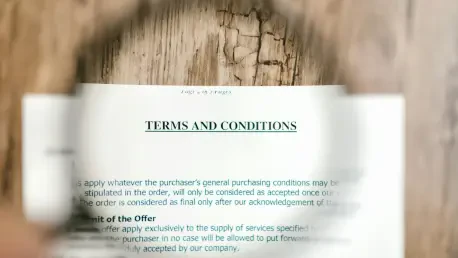In the fast-evolving sphere of Fintech, Kofi Ndaikate stands out with his comprehensive understanding of the sector, ranging from blockchain nuances to navigating intricate regulatory landscapes. Today, Kofi delves into the recent events surrounding Vocalink, a prominent player in the UK paytech field, which has been fined substantially by the Bank of England for compliance failures. Throughout our conversation, we explore the circumstances leading to the fine, the broader implications for the financial industry, and the measures taken by Vocalink to rectify their missteps.
Can you explain what led to Vocalink being fined by the Bank of England?
The fine imposed on Vocalink by the Bank of England, a first for a financial market infrastructure firm, stemmed from significant compliance issues, particularly under section 196 of the Banking Act 2009. Essentially, the company fell short in adequately addressing identified systems and controls issues within the mandated timeframe, which prompted the Bank to step in decisively.
What specific compliance failure under section 196 of the Banking Act 2009 did Vocalink commit?
Vocalink’s primary failure lay in not satisfactorily remediating systems and controls within the set period. This resulted in a section 196 compliance breach, as they did not meet the Bank’s Direction requirements by the deadline.
The Bank of England issued a direction under section 191. What were the requirements Vocalink needed to meet?
The direction under section 191 required Vocalink to implement a thorough remediation program to address the various deficiencies identified in their systems and controls. This program was expected to remedy all identified issues by February 28, 2022.
Vocalink failed to comply with the Direction by February 28, 2022. Can you describe the barriers they faced?
Vocalink’s journey to compliance was hindered by an ineffective risk management framework and governance structure. This inadequacy prevented proper understanding and mitigation of risks, contributing to their inability to meet the deadline.
How did an ineffective risk management framework contribute to Vocalink’s non-compliance?
An effective risk management framework is crucial for identifying, assessing, and addressing risks swiftly and accurately. Vocalink’s framework lacked integration, which meant risks were not adequately monitored or communicated across essential defense lines, contributing to the non-compliance.
What were the weaknesses in Vocalink’s controls, governance arrangements, and escalation processes?
Vocalink’s flaws included inadequate controls and poor governance arrangements, which meant critical risks and information weren’t escalated to senior management in time. This organizational oversight compromised their ability to comply fully with the Bank’s directives.
Can you elaborate on what the “three lines of defense” are and how they relate to effective risk management?
The “three lines of defense” refer to a model for risk management where the first line involves front-line operational management, the second involves risk management and compliance functions, and the third is internal audit. Effective synchronization between these lines ensures that risks are identified and managed efficiently.
What was the root cause identified by the Bank of England for Vocalink’s non-compliance?
The Bank of England pinpointed the root cause as Vocalink’s failure to have a sufficiently integrated risk management framework. This gap hindered their capacity to understand and manage program risks effectively, crucial for compliance.
How does Vocalink’s infrastructure contribute to the UK’s financial system?
Vocalink plays a critical role by powering the UK’s real-time and batch payment systems, as well as cheque image clearing systems. This infrastructure is essential for the seamless functioning of financial markets and the overall economy.
What role did the 2007 merger and Mastercard’s acquisition play in shaping Vocalink today?
The 2007 merger of Voca and LINK Interchange Network created a comprehensive payment services entity, later acquired by Mastercard in 2017. This acquisition brought Vocalink under Mastercard’s umbrella, augmenting its capabilities and reach within the financial sector.
According to Sarah Breeden, how did Vocalink fall short of its obligations?
Sarah Breeden highlighted that Vocalink did not meet expected standards in risk management and governance when responding to the Bank’s Direction. This shortcoming resulted in a significant fine, underscoring their failure to comply fully.
What were the consequences of Vocalink’s early admission of compliance failure?
By admitting their compliance failure early, Vocalink demonstrated cooperation, which contributed to a reduced fine. This proactive approach was crucial in mitigating further penalties and helped speed up the resolution process.
How did the penalty amount change due to Vocalink’s cooperation and early resolution of the matter?
Vocalink’s cooperation and timely admission led to a 15% reduction in the penalty, with an additional 30% cut for their commitment to resolving the issue. Consequently, the fine was significantly lowered from a potential £20 million to £11.9 million.
According to Vocalink, what measures have they taken to address the issues identified in 2020?
In response to the 2020 issues, Vocalink has invested heavily in system improvements and control enhancements. These measures were recognized in the Bank’s final notice as addressing identified deficiencies effectively.
How did the internal issues impact Vocalink’s services to UK consumers and businesses?
Despite the internal issues, Vocalink maintained that their service delivery to UK consumers and businesses remained unaffected. This claim suggests that operational continuity was upheld throughout the remediation period.
How has the Bank of England assessed Vocalink’s subsequent efforts to improve their systems and controls?
The Bank of England acknowledged Vocalink’s significant investments in rectifying their systems and controls. This recognition indicates progress in meeting the improved standards expected from financial market infrastructure firms.
Do you have any advice for our readers?
In the rapidly changing landscape of Fintech, it’s vital to prioritize robust risk management and maintain strong governance frameworks. By doing so, companies can not only prevent regulatory issues but also foster trust in the services they provide.









